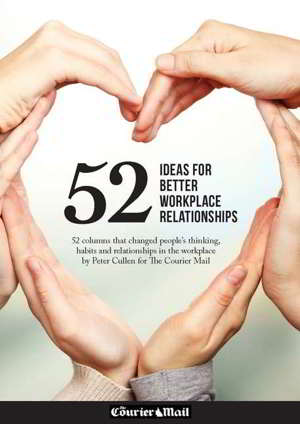Peter Cullen is currently the author of the Career Doctor articles appearing in the Institute of Managers and Leaders publication named Leadership Matters. The columns on this page have appeared in Leadership Matters. Peter also wrote a weekly column on Workplace Behaviour for the Courier Mail in Queensland. The ebook containing the Courier Mail articles is a free download.
Personal Resiliance
How can I build my personal resilience?
Resilience has become increasingly important in the workplace due to the positive or destructive impact it can have on an individuals wellbeing and performance. The Oxford Dictionary definition of resilience is ‘the capacity to recover quickly from difficulties.’
Although some of us are more resilient than others, we can all benefit from engaging in sound activities that promote physiological, mental and emotional wellbeing as low resilience makes us more susceptible to pressure and stress.
Stress is the body’s natural response to pressure or stressful situations we find ourselves in and are uncertain if we can cope effectively. Situations that are unfamiliar, challenge or threaten us increase our level of stress. A stress response may require higher energy levels to help us cope. The factor or situation causing our stress either positively or negatively is called a stressor.
Occupational stress can be defined as the physiological, mental and emotional responses that occur when workers perceive an imbalance between their work demands, their capability and/or resources to meet these needs and their level of control.
Importantly, stress responses occur when the imbalance is such that the employee perceives they are not coping in situations where it is important to them that they do cope.
Positive stress is beneficial and can improve our performance. A natural and automatic function of the body is to provide extra energy to help us tackle a stressful situation. It will then naturally return to its former balanced state. This return to balance ensures ongoing health and wellbeing. Some of the body’s beneficial reactions to a stressful situation include: mental alertness, liver releases sugar for energy, increased muscle responsiveness, faster heart rate, increased adrenaline and cortisol, increased blood pressure and faster breathing.
All these reactions occur automatically as the mind and body react to a stressful situation. It is necessary to remember that everybody copes differently with stress and everybody’s stress barrier is different.
To improve how we manage our stress and be more resilient, we need to build our self-awareness to better understand where we are physiologically, mentally and emotionally at any point in time. A simple method to use when you are in the moment is:
Identify how you are feeling and what you are thinking.
Ask yourself what effect these feelings and thoughts are having on me.
Consider whether these feelings and thoughts are helpful or not.
Action to be taken to improve these feelings and thoughts if they are unhelpful and simply continue if they are helpful.
I recommend using this method to reflect on a previous event causing stress and low resilience to help build your self-awareness. This will help you gain a greater understanding of how this method may be useful for you the next time you are in a stressful situation.
We can also build and strengthen our resilience by engaging in a variety of activities as part of our normal way of life. Here are some suggestions.
Physiological: Aerobic exercise, strength and conditioning, yoga or stretching, healthy nutritious eating, hydration, breath work, appropriate sleep.
Mental: Meditation, self-reflection to build self-awareness, relaxation techniques, reframe your thinking, establish boundaries, set achievable goals.
Emotional: strengthen constructive relationships, be appropriately honest with yourself and others, respect yourself, talk openly with trusted friends, know and live your personal values, seek support when necessary, learn techniques to manage your emotions.
We all have the ability to improve our level of resilience and maintain a strong physiological, mental and emotional state. When are you going to start improving your resilience and be the role model for others to follow?
Recent articles
- What Should You Do When A Manager Treats Staff Badly?
- An Aim Specialist Takes A Problem To Task
- 5 Practical Ways A New Leader Can Make A Positive Impact
- Bouncing back When 360-degree feedback is Hard to Take
- Choose a Candidate
Tags
FREE eBOOK OFFER

REGISTER your details to receive a copy of my eBook, "52 Ideas for Better Workplace Relationships"
